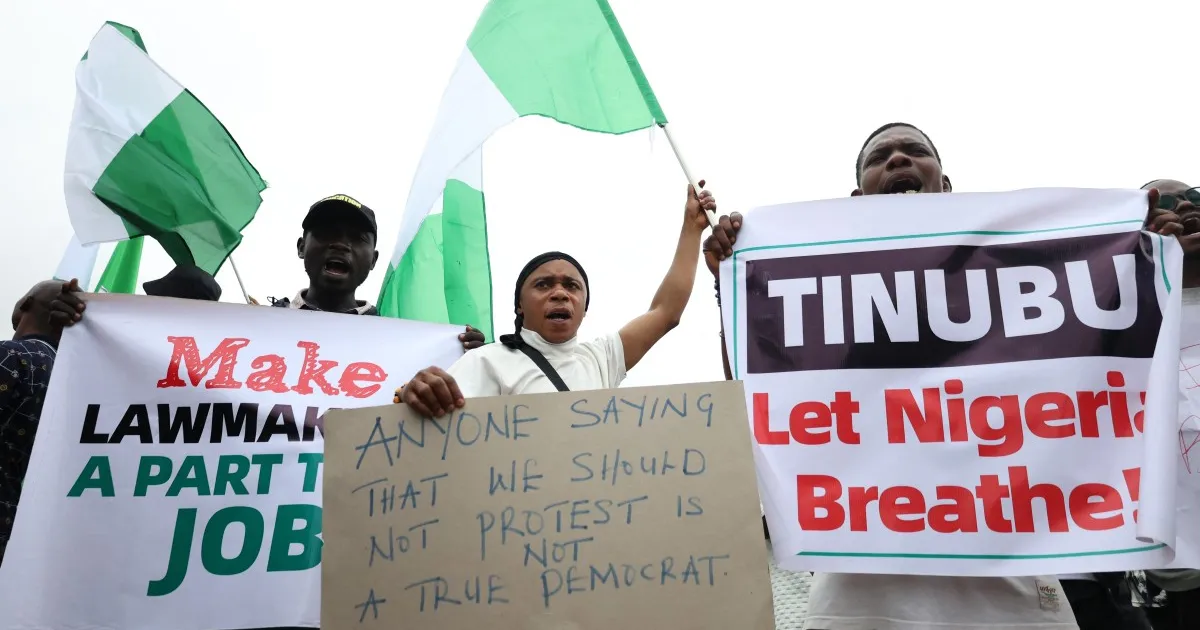Despite interventions from President Tinubu, Hundreds of people protest the rising cost of life and petrol prices around Nigeria.
Ten days of countrywide protests against the growing cost of living have begun, and Nigerian army and police have increased security in Lagos and the country’s capital, Abuja.
The most populous nation in Africa is experiencing severe inflation and a significant depreciation of the naira currency following President Bola Ahmed Tinubu’s implementation of economic reforms a year ago.
With the hashtag #EndbadGovernanceinNigeria, the internet campaign has helped the protest movement gain traction among Nigerians who are struggling with 40 percent food inflation and quadrupled petrol costs as a result of Tinubu’s policies.
According to the Reuters news agency, tear gas was used by police in Abuja on Thursday to disperse protestors. Police used tear gas in response to demonstrators attempting to start bonfires outside the governor’s office in the northern city of Kano, according to the AFP news agency.
Security forces blocked roads leading to Abuja’s Eagle Square – one of the planned demonstration sites – while in Lagos, police and soldiers were placed at strategic points, including at the Lekki toll gate, where protests in 2020 against police brutality ended in bloodshed.
“Duty is very clear: to ensure that the protest is peaceful, devoid of violence, devoid of the horrific things that happened during the rising in 2020,” Adegoke Fayoade, the state police commissioner in Lagos, told Al Jazeera
The administration on Wednesday unveiled a number of initiatives to lessen the country’s economic suffering, including providing grain to all 50 states and assistance to those in most need.
However, inhabitants of marketplaces around Nigeria stocked up on food and necessities due to worries that the rallies may escalate into violence.
“The police are brutalising the Nigerian people and people want that to stop,” activist Ismail Olushola Oladare, who participated in the 2020 protests, told Al Jazeera.
“Today, this particular protest and bad governance protest is about the standard of living of people,” he said.
Protest leaders, a loose coalition of civil society groups, promised to press on with rallies despite what they said were legal challenges trying to limit their rallies to public parks instead of marches.
Omolola Pedro, a protest organiser, told Al Jazeera that the idea of the rallies was to let the government know that Nigerians have had enough of the government’s “abuse of human rights, unstable economic situation [resulting from] the policies that they have made”.

